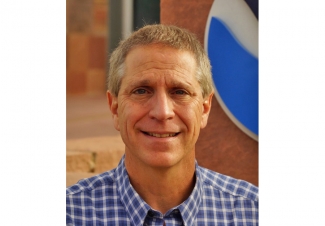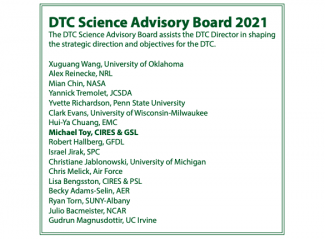The DTC plays a vital role in the development of the Unified Forecast System (UFS), particularly in the areas of physics parameterization development, and testing and evaluation (T&E). In these ways, the DTC is facilitating research to operations (R2O) efforts from a broad scientific community. Recently, I became a member of this community as a model-physics parameterization developer, coming from a background in experimental dynamical core development, the intricacies of which had become very familiar to me.
Being tasked to add a new physical parameterization module, which is code that describes the grid-scale evolution of forecast variables due to sub-grid scale (unresolved) physical processes to a highly complex model like the UFS Weather Model, was quite daunting. The Common Community Physics Package (CCPP), developed by the DTC, made the development process more manageable by providing a modular structure to the physics parameterization where one codes more or less as one wishes, and the code gets connected to the dynamical core of the UFS Weather Model (i.e., FV3 - Finite-Volume Cubed-Sphere), or that of any other model, with a skillfully designed software interface. The CCPP makes it easy to test different combinations of parameterizations, and to combine aspects of separate schemes to find the optimal configurations for future versions of the operational UFS.
Serving as the DTC Science Advisory Board (SAB) chair at the annual SAB meeting in September was an honor. The SAB consists of scientists in the UFS community from government laboratories, the Department of Defense, academia and the private sector. It was good to hear first-hand perspectives from stakeholders, who are not all model developers, about guidance on DTC's strategic direction and objectives. There is optimism that the transfer of code management and support to the Earth Prediction Innovation Center (EPIC) will free DTC's resources in expertise to more science related activities such as further T&E development, facilitating physics parameterization innovations, and increased training and outreach to the broader UFS community. There is also interest in seeing the METplus verification system become more widely used, and this will certainly be facilitated through the recent addition of new tutorials on the DTC website and the upcoming training workshop, as well as acceptance of METplus into NCEP operations. From the discussions the SAB had during the September 2021 annual meeting, it is evident that the DTC is instrumental in supporting the success the UFS has had so far, and will have in the future.

